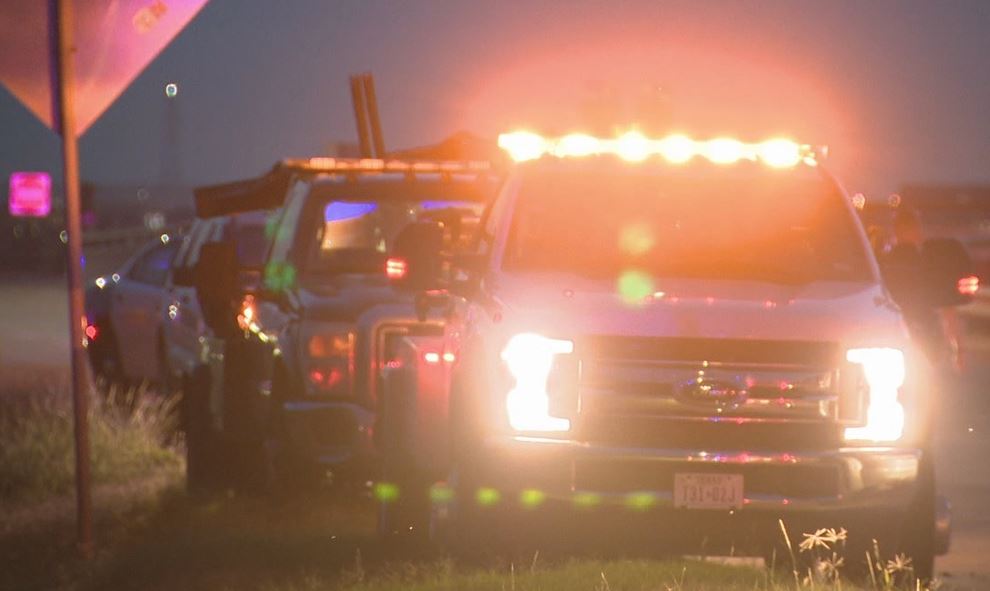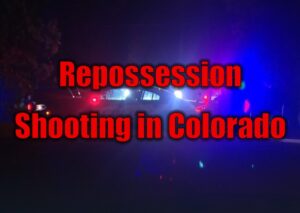
GUEST EDITORIAL
It’s a weekday at 1:30pm in a business complex in any town in America, when an LPR (License Plate Recognition) camera driver gets a hit on a vehicle. Like a thousand and more times a day all over the country, he calls in a truck who arrives to pick the vehicle up. But this time, as the vehicle is being secured, a second camera car, from a different and competing repossession agency arrives on the scene with two women in the car who block in the tow truck, claim possession and begin shouting obscenities and making threats against the agents in an attempt to bully them into giving up on the recovery.
While the original camera car driver attempts to discuss their right to the vehicle with the driver, he walks around and behind the competitor’s camera car to talk to the passenger, the driver of the camera car backs the car up into him knocking him to the ground. In panic, the camera car and its passenger flee the scene only to be followed up on by a tow truck from the competing company whose driver continues the berating tirade and attempts to thwart the repossession or draw the borrowers attention in order to solicit an interaction with the debtor that could cause a breach of peace, which would, of course, deny both companies and the lender from recovering the vehicle at all.
This actually occurred. Keep in mind, this entire scene played out in broad daylight and was captured on truck mounted cameras. Imagine what the agents are facing in the middle of the night, when less prying eyes are present?
In the incident described above, the LPR company that both agencies worked for refused to take any action against the offending party. While a police report has been filed against the offending individuals and video recording evidence of the incident is available, the ramifications against the company by its LPR service provider are completely absent, despite previous reported incidents that are outstanding in civil court as well as previous allegations of threats from the owner on one of its local competitors.
This is obviously not how the LPR network is supposed to work. Unfortunately, this incident, which occurred recently, is not an unusual one. These incidents have been occurring all over the country for years and little or nothing is being done about them unless an injury occurs or the police intervene.
While we all know that double assigning repossession assignments is both dangerous and can be deadly, it is an inherent risk constantly posed by the LPR process. What is different, is that usually, it is the borrower that poses the risk to the agent. It has now come to the point where the agents pose a risk to each other. In Phoenix on November 19, 2015, one agent actually shot another over a unit.
Finder’s keepers, we all learned that phrase as children. Well, protocol in the field should be the same. The idea that anyone should attempt to coerce another into giving up on a recovery or allowing one to be lost in spite is counterproductive, childish and unprofessional.
The repossession industry is and always has been a very competitive one, with agencies always trying to steal clients by hurting the other agencies effectiveness and reputation.
Many years ago, long before LPR, competing repossession agencies employees often engaged in nefarious activities against one another as benign as blaring their horns to wake borrowers inside while a competitor was recovering a unit, to slashing tires and hydraulic hoses, or even removing essential tools from competitors trucks like pigtails for tow lights or unsecured dollies on trucks parked at gas stations or coffee shops.
Meanwhile, at the agency owner level, they would yuk it up at association meetings, shake hands and act friendly with one another only to return to the offices and call clients making allegations about the same competitors losing their insurance, licenses or other claims in the effort to cast shade on their reputations.
Two of my favorite men in the industry competed directly with one another. The late Lee McDaniel of Eagle Recovery and Scott Patterson of Patterson Recovery of the Southern California Pomona area worked the same neighborhoods and competed for the same clients, but both were very good friends and were always willing to help one another in a time of need. While the majority of competitors aren’t as close as this, most are at very least, respectful and professional.
So, why can’t everyone play nice together? Times are lean, rates are flat and expenses keep rising. Every chunk of metal is critical for both the agency owners and their staff. It is at times like these that desperate people do desperate things, and very often with dangerous and litigious results.
It is a great frustration to the agents that pay to run LPR cameras, that they feel little or no protection by the LPR companies from these agencies who often employ these violent and nefarious tactics. But it is not only the LPR companies who have failed to reign in these bad actors. These companies usually run on the very same repossession insurance as everyone else, who are operating their companies both legally and compliant. These bad actors, are inevitably dragged into lawsuits that run up everyone’s insurance premiums, which are already the largest or second largest expense every repossession company in the nation deals with.
What can the repossession industry do to combat this type of unprofessional behavior? Not much, but the LPR and insurance companies would be best serving their clients and agency base by removing access to agencies engaging in proven, criminal, litigious or dangerous behaviors, especially those affecting the safety or recovery of the lenders collateral, before they end in lawsuits or criminal complaint.
While we can not understand why the LPR company in question chooses to remain affiliated with such a litigious and unprofessional company, there is one thing that every professional can do. Establish a clear “Golden Rule” of the field for all employees to follow. While competition is desired and appreciated, unprofessional and dangerous behavior is not and must be stopped.
Anonymous










Facebook Comments